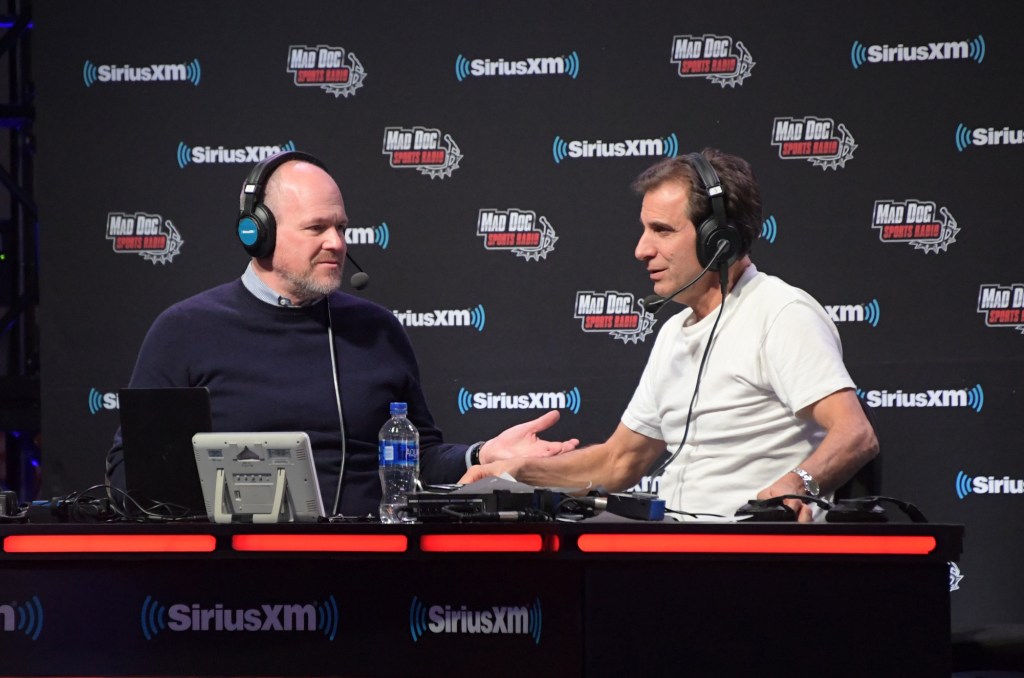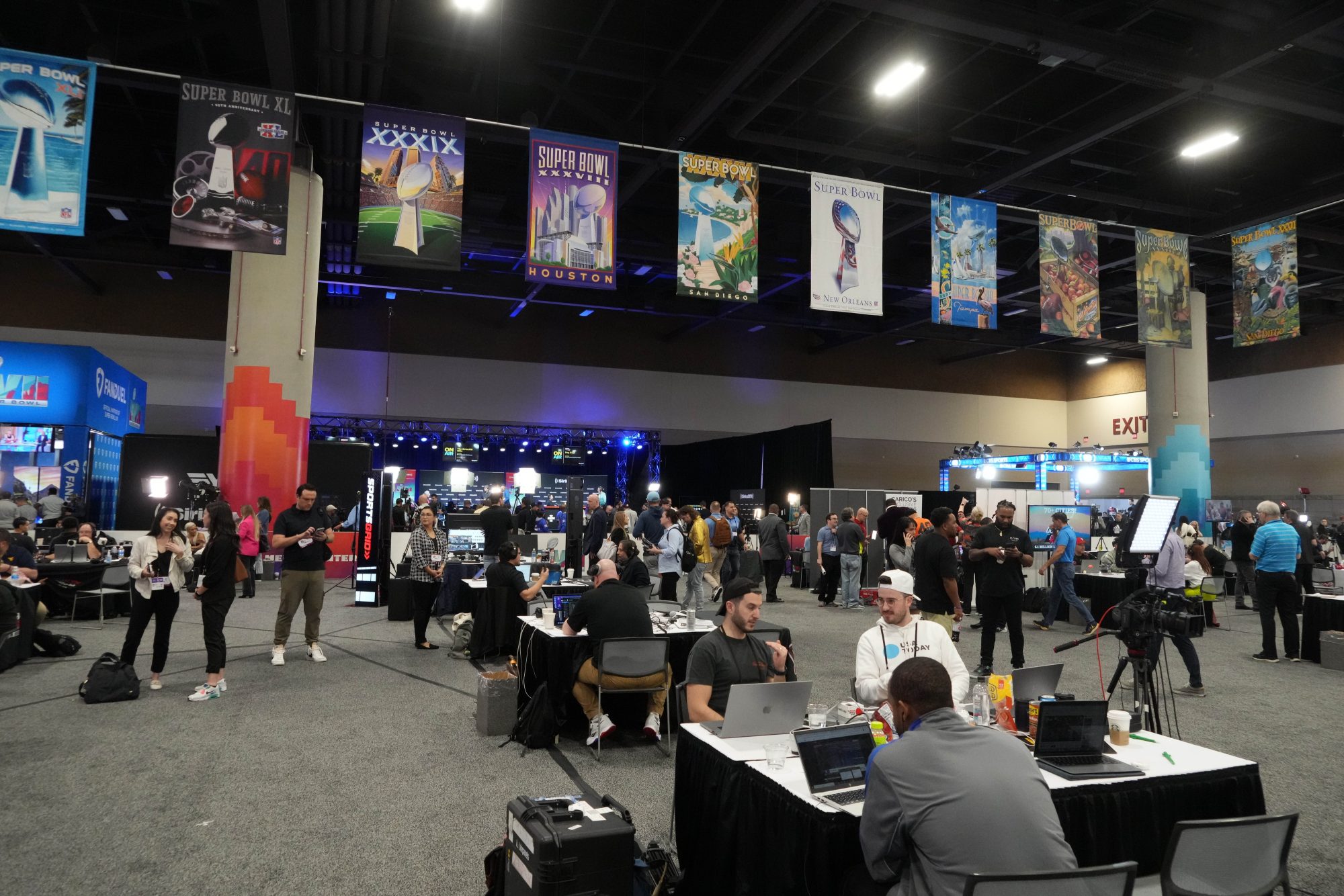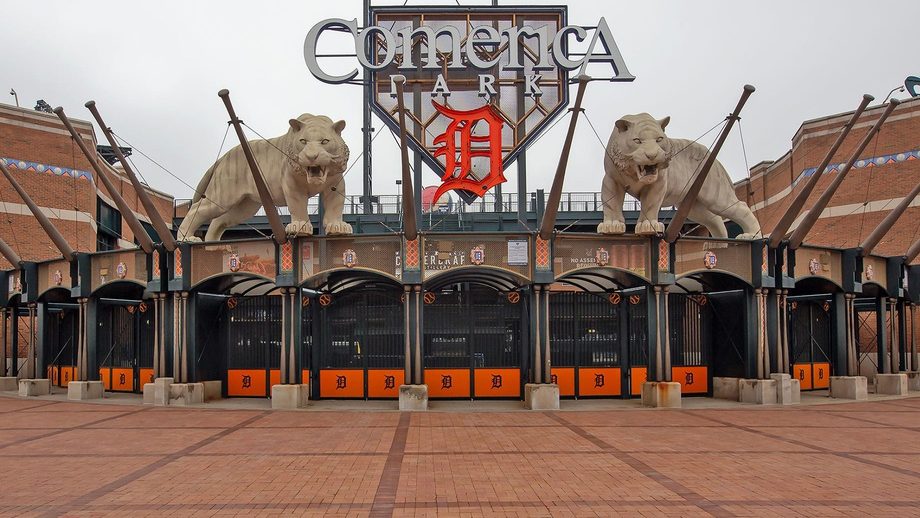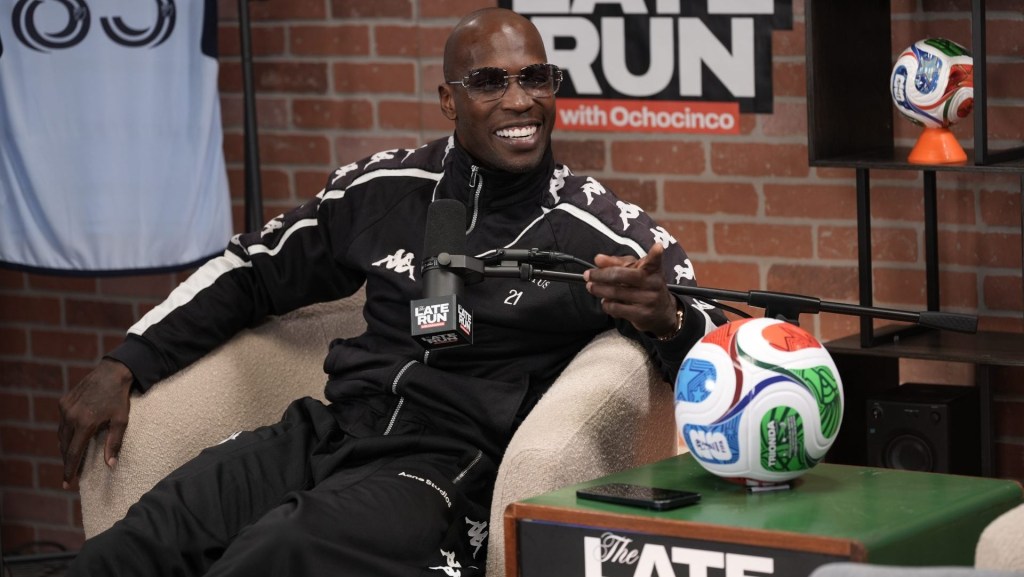LAS VEGAS — “Seventy-five radio producers begging you for five minutes of [your time].” That’s how San Diego radio personality Darren Smith describes the frenzied scene when a VIP ambles through the Super Bowl’s Radio Row—or Media Row, as it is now known, given new mediums such as podcasts and the inundation of influencers.
The five-day event is both a longstanding tradition and a crucial part of the economic engine that drives business for the NFL and the Super Bowl host city, as a parade of athletes and celebs (almost always with something to sell), agents and league officials trample through dozens and dozens of stations in the media center. Agent Leigh Steinberg says he personally did 71 interviews last year.
This year’s Row has its unique Vegas flashes, including three slot machines emblazoned with NFL logos standing guard in front of the expansive bullpen of radio desks. Outside that radio area are stages and sets for national programs, including those from DraftKings, FanDuel, and Fox Sports Radio, plus the likes of The Pat McAfee Show. It was Tuesday when I visited so the brand-shilling scrum had yet to begin in full.
But it wasn’t always like this. The story starts in 1992, at Super Bowl XXVI in Minneapolis. Mike Francesa and Chris Russo, then star radio personalities with WFAN in New York City, asked to broadcast from the lobby of the hotel where the league had set up its headquarters, the Hyatt. Jim Steeg was the NFL’s head of events at the time, and he says this marked the first instance of talent of this magnitude wanting to broadcast from the host city.
“The Hyatt said they could [do it]—if they paid $40,000,” says Steeg. (That’s nearly $87,000 today, adjusted for inflation.) “I remember talking to the GM of the hotel, saying, ‘Don’t do that. That’s a major mistake. They’ve got a bigger voice than you realize.’” Alas, the Hyatt wouldn’t budge, so Francesa and Russo—Mike and the Mad Dog—set up in a Holiday Inn across the street, at no charge, Steeg recalls.
The incident got Steeg thinking: Radio stations, which provided the NFL great exposure, needed a place to set up during the week of the Big Game. And so, in 1993, in Pasadena, Calif., Radio Row was born. By Steeg’s estimation, it all started with 10 to 12 stations—“the first guys of any consequence wanting to broadcast a radio show out of there.”
Russo, for his part, doesn’t remember much about Minneapolis—the $40,000 demand, he’d never heard that before. But he remembers the next year well, right down to the days before, when he says he and Francesa flew in from a golf excursion at Pebble Beach and Francesca got ill on the plane. “In ’93, I believe it was in a [hotel] conference room … where there were eight to 10 radio stations,” Russo says. “Now you are in a convention center with 500.”
In actuality, the number today is likely in the high double digits. (The NFL would not share an exact figure.) But Russo’s hyperbole underscores the growth of the league as a business boomlet that generates big bucks not just for owners but for the commercial interests, like radio, that feed off the sport. “It’s not about Radio Row as much as it is about driving audience and driving finances,” says Don Martin, executive vice president for iHeartMedia Sports. “The NFL is a solid business for audio companies. So [you’ll travel to] the Super Bowl if you have a choice to be there with one of your shows.” Such is the allure that even Audacy, the digital radio platform that operates CBS Sports Radio, still sent stations to the Super Bowl—even as it is in bankruptcy.

More Like Skid Row?
Of course, there are those, like Smith, the San Diego radio host, who say Radio Row is on the decline—that it has turned into one long conga line of product pitches. In fact, ESPN Radio did not even make the trip this year. Even Russo, the Godfather of the event, admits it’s a problem. “Spot after spot after spot after spot, and it gets a little monotonous,” he says. “You got a guy … and this is his eighth radio station that he has done in three hours … and he’s not going to be as peppy for you as he was for station number three.”
Still, Russo (above, right, with Rich Eisen on Radio Row before Super Bowl LIII) is a believer in onsite radio, because it leads to in-person interviews. Annually, he says, Chiefs owner Clark Hunt and Falcons owner Arthur Blank speak to him.
“They’re not coming on [my show if they’re] at the Super Bowl and I’m back in New York,” he says. But “if I’m in the building, and [they’re] walking around … I’ve got a good chance to get [them].”






![[Subscription Customers Only] Jun 15, 2025; Seattle, Washington, USA; Botafogo owner John Textor inside the stadium before the match during a group stage match of the 2025 FIFA Club World Cup at Lumen Field.](https://frontofficesports.com/wp-content/uploads/2026/02/USATSI_26465842_168416386_lowres-scaled.jpg?quality=100&w=1024)
![[Subscription Customers Only] Jul 13, 2025; East Rutherford, New Jersey, USA; Chelsea FC midfielder Cole Palmer (10) celebrates winning the final of the 2025 FIFA Club World Cup at MetLife Stadium](https://frontofficesports.com/wp-content/uploads/2026/02/USATSI_26636703-scaled-e1770932227605.jpg?quality=100&w=1024)









